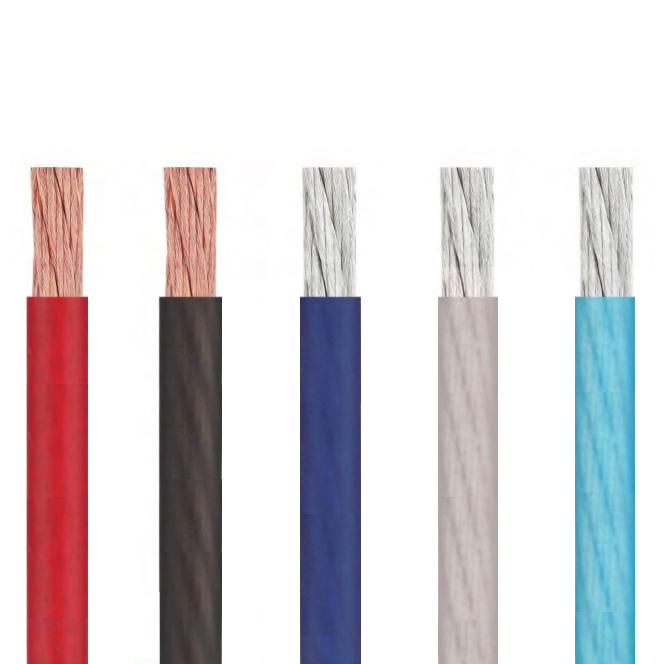A Complete Q&A Guide to Car Power Cables
2025-01-14
What Is a Car Power Cable?
A car power cable is a specialized electrical cable used to transfer power from a vehicle’s battery to various components, such as car audio systems, amplifiers, lights, or other electronic accessories. These cables are designed to handle high current loads and ensure efficient power distribution without voltage drops.
What Are the Common Types of Car Power Cables?
Car power cables come in different types based on their usage and design:
- Primary Power Cable: Used for high-current devices like amplifiers.
- Ground Cable: Connects the device back to the vehicle’s chassis for grounding.
- Remote Turn-On Cable: Activates devices like amplifiers when the ignition is turned on.
- Battery Cables: Connect the battery to the vehicle’s electrical system.
What Materials Are Used in Car Power Cables?
Car power cables are typically made from:
- Copper (OFC - Oxygen-Free Copper): Known for superior conductivity and minimal resistance.
- Copper-Clad Aluminum (CCA): More affordable but less conductive than pure copper.
- Insulation Materials: PVC, rubber, or other heat-resistant materials protect the conductor.
Why Is Cable Gauge Important for Car Power Cables?
Cable gauge (thickness) affects the cable’s ability to handle current. It’s measured using the AWG (American Wire Gauge) standard.
- Lower AWG = Thicker Cable = Higher Current Capacity
- Higher AWG = Thinner Cable = Lower Current Capacity
Common Gauge Recommendations:
- 8-10 AWG: Small devices and low-power accessories.
- 4-6 AWG: Medium-power audio systems.
- 0-2 AWG: High-power amplifiers and performance setups.
How Do I Choose the Right Car Power Cable for My System?
Consider these factors when selecting a car power cable:
- Power Requirements: Match the cable gauge to your power demands.
- Material: Choose OFC for better performance if budget allows.
- Length: Longer cables need lower gauge (thicker) wires to avoid voltage drops.
- Insulation Quality: Ensure heat resistance and durability.
What Are the Benefits of Using High-Quality Car Power Cables?
- Efficient Power Transfer: Reduces power loss and improves device performance.
- Enhanced Safety: Prevents overheating and electrical fires.
- Better Audio Quality: Ideal for car audio systems with minimal interference.
- Durability: Longer lifespan with proper insulation and quality materials.
How to Install a Car Power Cable Properly?
Step-by-Step Installation Guide:
1. Disconnect the Battery: Always start by disconnecting the negative terminal.
2. Route the Cable: Find a safe path from the battery to the device.
3. Secure the Cable: Use cable ties and secure mounts to avoid loose wiring.
4. Connect to the Battery: Attach the power cable to the positive terminal with a fuse holder.
5. Ground Connection: Secure the ground cable to the vehicle chassis.
6. Test the Connection: Reconnect the battery and test the setup.
What Safety Precautions Should Be Taken with Car Power Cables?
- Use a Fuse: Always install a fuse close to the battery to prevent overcurrent damage.
- Proper Grounding: Ensure a solid ground connection to avoid electrical faults.
- Avoid Cable Damage: Use protective sheathing to prevent abrasion.
- Check for Heat Resistance: Ensure the insulation can withstand engine heat.
Can Car Power Cables Affect Audio Quality?
Yes! Poor-quality cables can cause:
- Voltage Drops: Resulting in reduced amplifier performance.
- Electrical Noise: Interference leading to sound distortion.
- Insufficient Power Delivery: Affecting the clarity and loudness of the audio.
For optimal audio performance, use OFC cables with appropriate gauge sizing.
Where Can I Buy Car Power Cables?
You can purchase car power cables from:
- Automotive Parts Stores: Specialized auto parts retailers.
- Online Marketplaces: Amazon, eBay, and Alibaba.
- Car Audio Shops: For high-quality audio-grade cables.
- Electronics Wholesalers: For bulk purchases and custom orders.
Conclusion
A car power cable plays a critical role in ensuring safe and efficient power delivery to your vehicle’s electronic systems. Whether you're installing a high-end audio setup or upgrading vehicle accessories, choosing the right gauge, material, and quality is essential for performance and safety. Always prioritize high-quality cables to avoid voltage drops and electrical issues.



